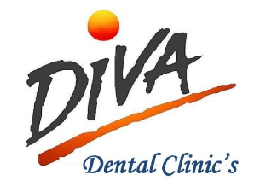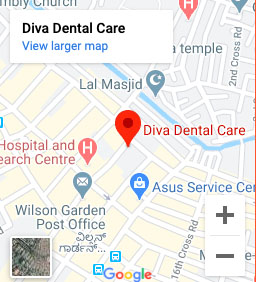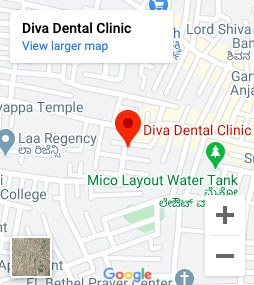Dental Cleaning

Dental Cleaning helps to avoid tooth decay. Tooth decay is damage to a tooth caused by bacteria-producing acids that chip away at the enamel. It can cause dental cavities, which are holes in the teeth. Cavities, if left untreated, can lead to toothaches, infection, and tooth loss. The American Dental Association suggests that people should clean their teeth professionally twice a year. During the cleaning, your dentist will provide you with preventive and diagnostic services as well as any necessary educative information.
Dental hygiene and care are about more than just looking after your teeth. They're crucial measures toward taking care of oneself. Teeth cleaning is a necessary dental care procedure that comprises scaling and planning the tooth to remove dental plaque. Those with severe dental problems may require more regular visits to the clinic.


Positive effects of dental cleaning:
- It puts a smile on your face. Certain foods and beverages can discolor your teeth. Dental cleaning eliminates stains that have built up over time, resulting in finely polished teeth.
- Dental scaling your teeth with your nearby dentist is the most effective technique to enhance your smile.
- Cleaning your teeth can help you avoid gum disease, which can lead to tooth loss.
- Keeping your teeth clean is the most effective approach to do so. Receiving a dental cleaning treatment in addition to your usual brushing and flossing will offer you a healthier mouth and better breath.
- Plaque accumulation on your teeth promotes tooth decay which builds up cavities. They eat away at the enamel on your teeth, causing cavities. Dental cleaning, when combined with consistent brushing and flossing, helps to avoid cavities.
More About Plaque and dental cleaning
- This build-up on your teeth causes your teeth and gum line to weaken, which can lead to tooth loss. Gum disease is the most common reason for tooth loss as a result of this. We can avoid tooth loss by practicing good oral hygiene at home and getting regular dental cleanings with your dentist nearby
- Because there is a link between your whole health and your dental health, your overall health improves if routine dental cleaning is done. Maintaining good oral hygiene reduces your risk of developing diabetes and heart disease conditions.
- Dentists can also discover several medical issues during an oral exam. Many dental cancers are treatable if caught early enough during a normal cleaning.
- Most stains that weaken and discolor your teeth are treated by your dental hygienist, leaving you with a healthier, whiter smile. There is a significant association between gum disease and cardiovascular disease. Cleaning your teeth twice a year prevents gum disease and lowers your risk of potentially fatal heart attacks and strokes.
Most dental plans cover cleanings, and by availing of the benefit of your policy, you'll save money on dental costs in the long term. If your dentist discovers any major issues during cleaning or exam, the clinic can assist you in making financial arrangements to finance the required operations. Know more about types of teeth cleaning.
What happens during dental cleaning?
Do you have any hesitations regarding your future consultation with us? If that's the case, don't be concerned! When it comes to routine cleanings, though, some of us are reluctant for certain reasons. Mostly because they dislike the pain that comes with any type of dental treatment. Professional teeth cleanings are, however, fast, uncomplicated, painless and required for long-term oral health. Gaining a solid overview of the technique is one of the few methods you might ease your discomfort with dental cleanings. This article will walk you through the entire process of getting your teeth cleaned professionally. We desire you to feel at ease and ready as much as possible.
Initial Oral Exam for dental cleaning
First, the dentist examines the interior of your mouth using a small mirror. If they notice any obvious problems, they will inform you about further treatments. However, if they discover something severe, they may decide to put the cleaning on hold altogether. They would then confer with you and other dentists on the best course of action.
Getting Rid of Plaque & Tartar
Plaque can be removed from your teeth by brushing and flossing at home. This film's hidden between teeth or along the gum line, on the other hand, can be tough to remove. Afterward, they are developed into tartar may only be removed by a dentist. Professional teeth cleaning is more extensive and effective than at-home cleaning. This is due to your hygienist's ability to carefully eliminate plaque and tartar using special equipment called a scaler.
Teeth polishing
After that, the dentist polishes your teeth with a special high-powered brush and gritty tooth polish. The dentist may ask you to choose your preferred flavor tooth polish before they begin. Cleaning your teeth shouldn't be painful at all. As a result, the whirring of the toothbrush does not need to frighten you. Kudos! You're practically through with your dental cleaning if you've read this long.
The dentist will clean your teeth as the final procedure. This will get rid of any plaque that might be hiding between your teeth. Regular brushing and flossing might also help your dentist figure out where your gums are bleeding.
Rinsing
Your dentist will then spray some water into the mouth as well as ask you to swish it around. When you're done, they will suction the water out of your mouth. The rinse stage aids in the removal of any remaining tooth polish.
Visit the dentist for a final checkup
- After you've completed your professional teeth cleaning, one of the dentists will do a final review. You're good to go if they don't find anything wrong with your teeth.
- In addition, the dentist will address any queries you may have. Following that, the dentist will ask you to schedule your next dental checkup and cleaning in six months.
Enjoying a bright, healthy smile is one of the positive effects of teeth cleaning. If a patient has additional oral health conditions, they may suffer bleeding gums. Patients experiencing gum disease, for contrast, may develop bleeding gums during flossing however they can do a follow-up with the dentist and get it treated as well. Teeth cleanings are necessary since they enable us to spot oral health problems before they escalate. Please Feel free to contact Us to Schedule an Appointment. As a result, we'd be delighted to assist you in maintaining a healthy smile for the rest of your life! Call us right now to set up an appointment.
How Long Does It Take to Clean Your Teeth?
A dental cleaning might take anywhere from 30 minutes to an hour. You will relax in a nice dental chair during this time as we check your teeth. Upon polishing your enamel with a mildly abrasive paste, we'll remove tooth plaque and tartar.
If we require to take X-rays, your session may take more time. If we detect a problem, we may also need to discuss treatment alternatives.
How often should professional teeth cleaning be done?
Your dentist will generally recommend professional teeth cleaning at least twice a year if you maintain good dental hygiene routines and a healthy mouth.
What is deep cleaning?
- Scaling and root planing, also referred to as dental deep cleaning, uses specialized methods to remove plaque, tartar, plus bacteria from below the gum line and down to the tooth roots.
- This stops gum disease from spreading and leading to tooth loss.
- Deep cleanings are extremely thorough than routine cleanings and go deeper below the gum line, therefore they may inflict some discomfort or irritation.
- Before starting the deep cleaning, the dentist will numb the procedure spot to assure patient comfort.
What is the difference between teeth cleaning and teeth whitening?
Patients frequently mistake teeth cleaning and teeth whitening, which are two different types of dental treatment. These techniques, on the other hand, and their objectives are different.
- The primary function of teeth cleaning is to remove plaque and tartar from your tooth's surfaces. This technique minimizes your chances of developing tooth decay as well as gum disease.
- Teeth whitening, on the contrary, is a cosmetic treatment that whitens teeth and removes stains. Briefly told, teeth cleaning boosts your mouth's health, whereas teeth whitening brightens as well as enhances the aesthetic of your teeth.
- Teeth cleaning is essential for maintaining the condition of your teeth and gums, while teeth whitening is mainly cosmetic.



